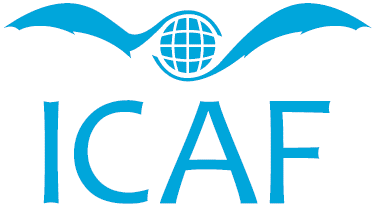The engineered residual stress implementation (ERSI) working groupPaper: PPT: Session: Poster pitches day 3 Room: Theatre room: plenary Session start: 10:00 Wed 28 Jun 2023 Dallen Andrew dlandrew@hill-engineering.com Affifliation: Hill Engineering Jacob Warner jacob.warner@us.af.mil Affifliation: USAF A-10 ASIP TJ Spradlin thomas.spradlin.1@us.af.mil Affifliation: USAF AFRL Topics: - Life extension and management of ageing fleets (Genral Topics), - NDI, inspections and maintenance (Genral Topics), - Fatigue crack growth and life prediction methods (Genral Topics), - Fatigue life enhancement methods and repair solutions (Genral Topics), - Residual stress engineering (Genral Topics) Abstract: The Engineered Residual Stress Implementation (ERSI) working group was formed in 2016 with a mission to “develop a holistic paradigm for the implementation of engineered residual stresses into lifing of fatigue and fracture critical components”. ERSI emerged from within the United States Air Force (USAF) aircraft structural integrity community as a forum for individuals and organizations to collaborate constructively, transition technology and data to the public sphere, and consult on policy/best practices concerning the incorporation of residual stresses with other entities such as the FAA, DoD, ASTM, SAE, etc. ERSI members represent a broad diversity of interests and backgrounds, both domestic and international, from military, academia, and industry. The primary focus of ERSI so far has been the transition of a classic engineered residual stress technology, cold expansion of holes, into life extension for USAF weapon systems. Although hole cold expansion is known to provide significant structural fatigue life extension, the full potential improvement has not been included in certified airworthiness limits. With extensive support from ERSI, the USAF recently issued a Structures Bulletin which allows aircraft structural integrity managers to utilize cold expansion benefits for initial and recurring inspection intervals, a significant achievement for both platform availability and fleet-wide cost savings. This achievement is a holistic product from the six primary focus areas, or committees, within ERSI that represent different technical disciplines of aircraft structural integrity: 1) fatigue crack growth analysis, 2) validation testing, 3) residual stress measurement, 4) nondestructive inspection/evaluation and quality assurance, 5) residual stress process simulation, and 6) risk assessment and uncertainty quantification. While ERSI does not fund work directly, these six committees work together to identify and address technical gaps, define the requirements and guidelines for implementation, and collaboratively develop and accomplish new round robin activities that advance the state-of-the-art. An overview of the activities of the ERSI working group will be presented, including round robin efforts related to residual stress measurements, FE process simulations of cold expansion of holes, fatigue crack growth analyses incorporating residual stresses and/or interference fit fasteners, stress spectrum effects, and stress intensity factor comparisons. |

ICAF 2023
Delft, The Netherlands, 2023